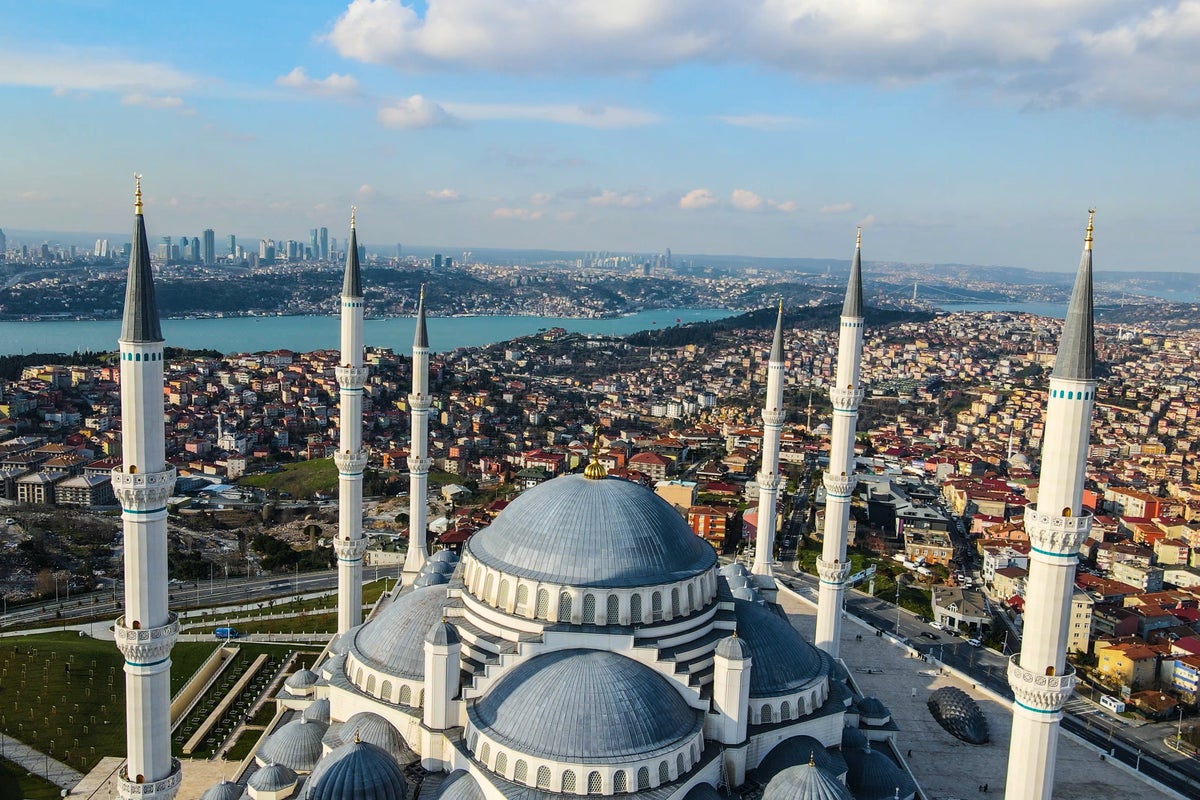As tensions rise in the
Middle East
Concerns have escalated regarding the safety of traveling to nations adjacent to these regions.
Israel
and
Iran
– including holiday hotspot
Turkey
.
The FCDO views Turkey’s primary tourist regions as largely secure for travelers; however, they have released area-specific advisories due to continuing conflicts.
Israel initially fired missiles at Iran last Friday (June 13).
stating it aimed at striking its nuclear and military facilities with a “preventive” action
To prevent the nation from advancing a weapons program.
Iran’s retaliatory strikes
have since heightened fears that the conflict could spill into the wider region.
Both nations have kept up their efforts.
aim devastating missiles and airstrikes at one another
over the weekend.
Turkey, a favored summertime getaway for British tourists, borders Iran to the east. Travelers who have already made plans might be wondering whether they should still go ahead with their holidays there.
Here’s the most recent guidance on traveling to Turkey, along with all the essential questions and answers.
Read more:
Israel-Iran latest
What does the Foreign Office indicate?
Holiday destinations and urban areas in Turkey such as Antalya, Bodrum, and Cappadocia are typically regarded as safe for tourism.
The FCDO, however, warns against traveling within 10 kilometers of Turkey’s border with Syria because of “combat activities and an increased threat of terrorism.”
The message states: “Owing to the continuing conflict in Syria, routes within Hatay Province that lead toward the frontier might close with little warning.”
Outside of this area, travellers are warned to remain aware of their surroundings as “terrorists are very likely to try to carry out attacks in Turkey”.
The Foreign Office states that recent incidents in Israel and the Occupied Palestinian Territories have resulted in increased tension throughout Turkey.
Visitors are advised to steer clear of all protests related to the conflict in major urban areas, with special attention to avoiding demonstrations near Israeli diplomatic missions in Ankara and Istanbul.
To go to the Hakkari province in the south east, travellers require permission from the local Governor’s Office to “visit areas near the border with Iraq and Iran”.
Are Turkey flights continuing?
As of 16 June, Turkey’s main tourist airports appear to be operating largely as usual, and both Istanbul Airport and Antalya Airport have frequent arrivals and departures scheduled.
However, cancellations continue for flights to and from Turkey to destinations including Baghdad, Beirut, Erbil, Isfahan, Mashhad, Shiraz and Tehran.
Airlines Jordan Aviation and Royal Jordanian are still flying between the Jordanian capital Amman and Istanbul.
What if I have booked a package holiday to Turkey?
The Foreign Office hasn’t provided updated guidance cautioning against traveling to Turkey, so whether you can cancel your trip depends on your holiday provider. It would be wise to reach out to them if you’re considering rescheduling.
If you decide to cancel your reservation out of safety worries, companies are not required to provide refunds, and you won’t be able to secure travel insurance unless the Foreign Office alters their advisory.
To stay updated with more travel news and guidance, tune into Simon Calder’s podcast.
The Independent stands out as the globe’s premier source of unbiased reporting, offering worldwide news, insights, and evaluations tailored for those with an independent mindset. With a vast international audience comprising people who appreciate independence of thought, we’ve established ourselves through reliability and dedication to fostering constructive transformation. Today more than ever, our purpose—to drive change forward—remains crucial.













Leave a Reply